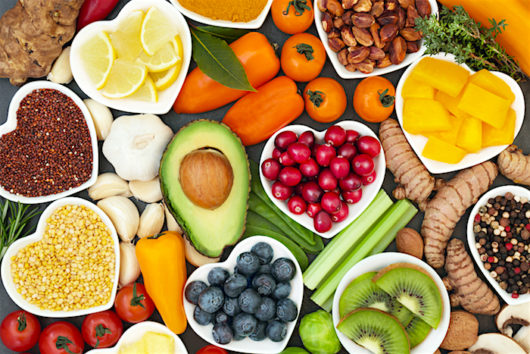It is amazing to have scaled through the myriads of hurdles of the previous year, but it is much more important for you to make plans on how to lead a healthier life, which keeps diseases at bay. While it is established that you are what you eat, the World Health Organisation (WHO) has urged all to include the consumption of balanced diet into their New Year’s resolution.
The apex health institution, in its recent report revealed that a lot of things we eat and drink go a long way in influencing our body’s immunity, as well as the tendencies to develop health conditions in the future, such as heart diseases, diabetes, obesity, cancer, etc.

Hence, the health body has drawn up a list of what to do, to assist people consume healthy diet in the New Year.
They include:
- Eat a variety of food
- Cut back on salt
- Reduce use of certain fats and oil
- Limit sugar intake
- Avoid hazardous and harmful alcohol use
Eat a variety of food
Some tips to ensure a balanced diet:
In your daily diet, aim to eat a mix of staple foods such as wheat, maize, rice and potatoes with legumes like lentils and beans, plenty of fresh fruit and vegetable, foods from animal sources (e.g. meat, fish, eggs and milk).
Choose wholegrain foods like unprocessed maize, millet, oats, wheat and brown rice when you can; they are rich in valuable fibre and can help you feel full for longer.
For snacks, choose raw vegetables, unsalted nuts and fresh fruit, rather than foods that are high in sugars, fats or salt.
Cut back on salt
Too much salt can raise blood pressure, which is a leading risk factor for heart disease and stroke. Most people around the world eat too much salt: on average, we consume double the WHO recommended limit of 5 grams (equivalent to a teaspoon) a day.
Even if we don’t add extra salt in our food, we should be aware that it is commonly put in processed foods or drinks, and often in high amounts. Check the labels on food and go for products with lower sodium content.
Reduce use of certain fats and oil
We all need some fat in our diet, but eating too much – especially the wrong kinds – increases risks of obesity, heart disease and stroke. Industrially-produced trans fats are the most hazardous for health. A diet high in this kind of fat has been found to raise risk of heart disease by nearly 30%.
Choose white meat like poultry and fish which are generally lower in fats than red meat, trim meat of visible fat and limit the consumption of processed meats.
Try steaming or boiling instead of frying food when cooking.
Check labels and always avoid all processed, fast and fried foods that contain industrially-produced trans fat. It is often found in margarine and ghee, as well as pre-packaged snacks, fast, baked and fried foods.
Limit sugar intake
Too much sugar is not only bad for our teeth, but increases the risk of unhealthy weight gain and obesity, which can lead to serious, chronic health problems.
Some tips to reduce sugar intake:
Limit intake of sweets and sugary drinks such as fizzy drinks, fruit juices and juice drinks, liquid and powder concentrates, flavoured water, energy and sports drinks, ready-to-drink tea and coffee and flavoured milk drinks.
Choose healthy fresh snacks rather than processed foods.
Avoid giving sugary foods to children. Salt and sugars should not be added to complementary foods given to children under 2 years of age, and should be limited beyond that age.
Avoid hazardous and harmful alcohol use
Alcohol is not a part of a healthy diet, but in many cultures New Year’s celebrations are associated with heavy alcohol consumption. Overall, drinking too much, or too often, increases your immediate risk of injury, as well as causing longer-term effects like liver damage, cancer, heart disease and mental illness.
WHO advises that there is no safe level of alcohol consumption; and for many people even low levels of alcohol use can still be associated with significant health risks .
Remember, less alcohol consumption is always better for health and it is perfectly OK not to drink.











Like!! I blog frequently and I really thank you for your content. The article has truly peaked my interest.